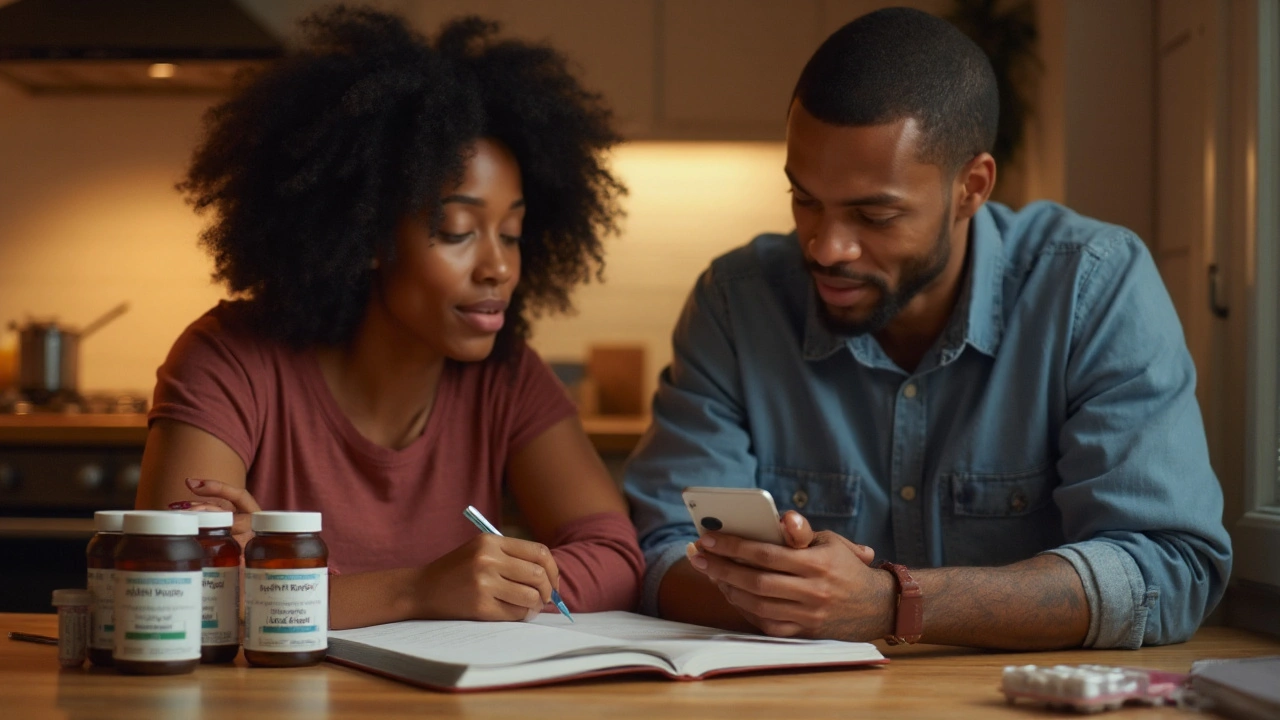Antidepressants and Sex Drive: What to Expect and How to Handle It
If you’ve started an antidepressant and notice a dip in libido, you’re not alone. Many people on these meds report changes in desire, arousal, or even performance. The good news? You don’t have to accept it as permanent. Understanding why it happens and what you can do makes a big difference.
Why Antidepressants Can Lower Libido
Most of the drugs that treat depression work by altering brain chemicals like serotonin, norepinephrine, and dopamine. Higher serotonin levels, which help mood, can also calm down the brain’s reward system. That calming effect often translates to less sexual desire. SSRIs (selective serotonin reuptake inhibitors) such as Prozac, Zoloft, and Paxil are the usual culprits because they boost serotonin the most.
Other classes act a little differently. SNRIs (like Effexor) raise both serotonin and norepinephrine, which can still mute desire but sometimes cause erection issues. Tricyclic antidepressants (TCAs) affect many neurotransmitters and may lead to dry mouth, fatigue, and lower libido. Even newer drugs like bupropion (Wellbutrin) tend to have a milder impact on sex drive because they focus more on dopamine and norepinephrine.
Practical Ways to Keep Your Sex Life Healthy
First, talk to your prescriber. Adjusting the dose or switching to a different medication can restore normal desire. Many doctors recommend bupropion as an add‑on or a replacement when sexual side effects become a problem.
Second, timing matters. Some people find taking the pill in the morning lowers the impact on nighttime intimacy, while others prefer the opposite. Experiment with the schedule – just make sure you stay consistent with the therapeutic dose.
Third, add lifestyle boosters. Regular exercise, especially cardio, raises dopamine and improves blood flow, which can counteract medication‑related dips. A balanced diet with zinc‑rich foods (like pumpkin seeds) and healthy fats also supports hormone production.
Fourth, don’t shy away from counseling. Sex therapy or couples counseling can help you and your partner navigate changes without blame. Simple communication – saying what feels good and what doesn’t – often relieves performance anxiety that can worsen the problem.
Finally, consider safe “drug holidays” if your doctor approves. Skipping a dose for a weekend sometimes restores libido temporarily, but it’s not right for everyone and must be done under medical supervision.
Remember, depression itself can lower desire, so it’s a balance between treating mood and maintaining intimacy. Monitoring your symptoms, staying honest with your doctor, and trying these practical steps can keep both your mind and body on the right track.
Bottom line: Antidepressants can affect sex drive, but you have options. Adjust meds, tweak timing, boost lifestyle, and keep the conversation open. With a few tweaks, you can manage your mental health without sacrificing the bedroom.

Medications That Lower Sex Drive: Causes, Fixes, and Safer Alternatives
- by Colin Edward Egan
- on 3 Sep 2025
Which meds lower sex drive and what to do. Clear lists, step‑by‑step fixes, safer swaps, and when to talk to your doctor. Practical, evidence‑based tips.
